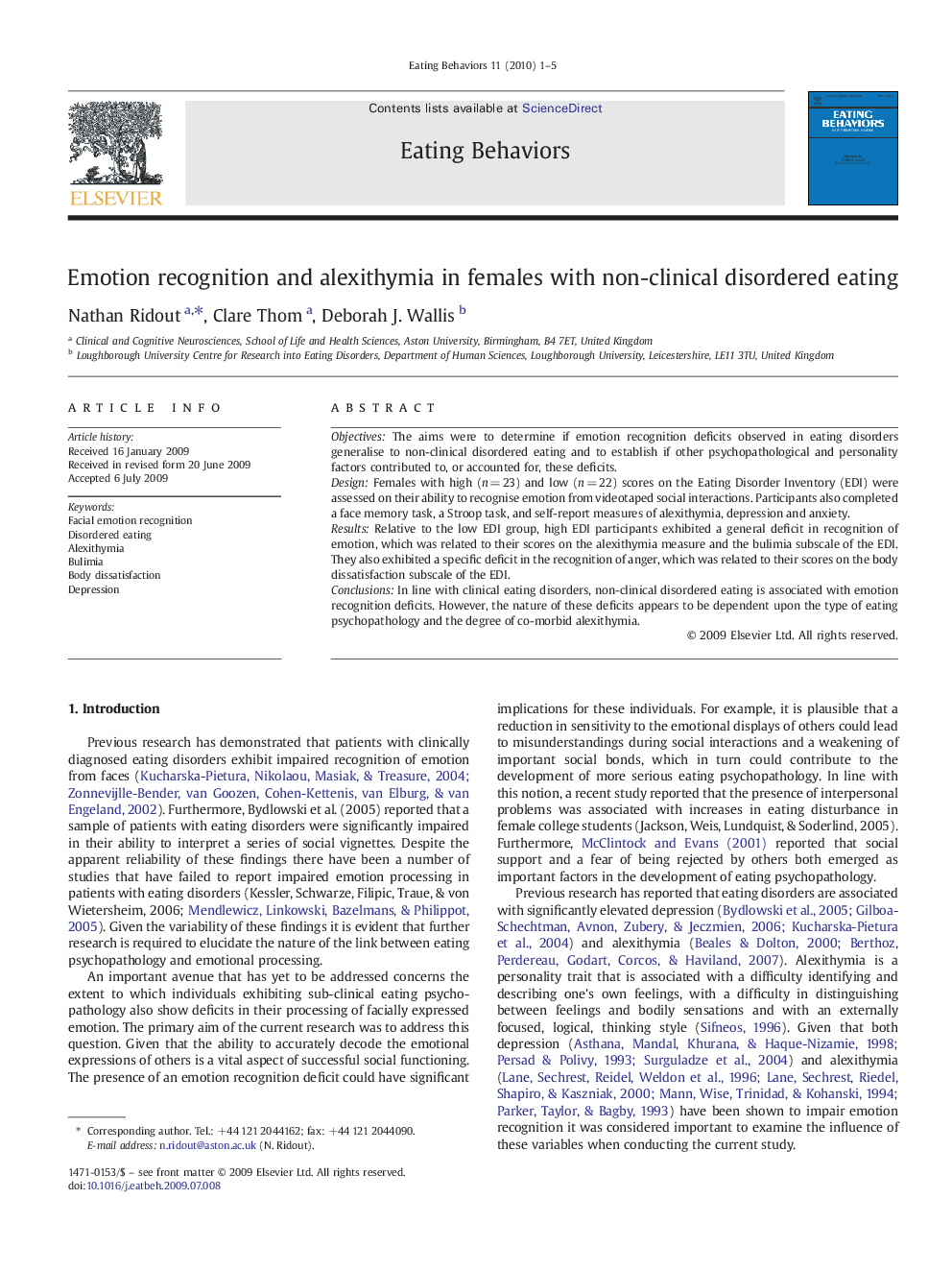| Article ID | Journal | Published Year | Pages | File Type |
|---|---|---|---|---|
| 906774 | Eating Behaviors | 2010 | 5 Pages |
ObjectivesThe aims were to determine if emotion recognition deficits observed in eating disorders generalise to non-clinical disordered eating and to establish if other psychopathological and personality factors contributed to, or accounted for, these deficits.DesignFemales with high (n = 23) and low (n = 22) scores on the Eating Disorder Inventory (EDI) were assessed on their ability to recognise emotion from videotaped social interactions. Participants also completed a face memory task, a Stroop task, and self-report measures of alexithymia, depression and anxiety.ResultsRelative to the low EDI group, high EDI participants exhibited a general deficit in recognition of emotion, which was related to their scores on the alexithymia measure and the bulimia subscale of the EDI. They also exhibited a specific deficit in the recognition of anger, which was related to their scores on the body dissatisfaction subscale of the EDI.ConclusionsIn line with clinical eating disorders, non-clinical disordered eating is associated with emotion recognition deficits. However, the nature of these deficits appears to be dependent upon the type of eating psychopathology and the degree of co-morbid alexithymia.
